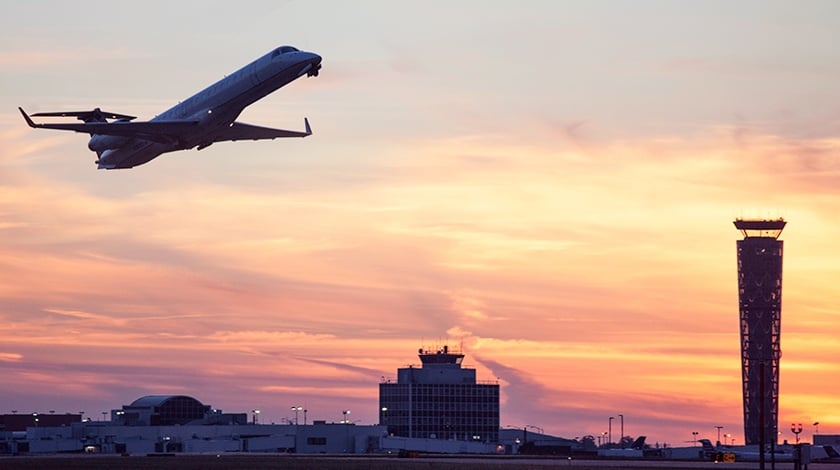Photo: flydayton.com
Reading Time: 2 minutesThe global air transport industry is headed for a major infrastructure crisis, the IATA director general warned Wednesday, as fears grow about how already congested airspace and constrained airports will cope with the predicted growth in air travel.
Addressing the Association of Asia Pacific Airlines (AAPA) annual assembly in Taipei Oct. 25, Alexandre de Juniac noted that IATA’s latest 20-year air passenger forecast expects 7.8 billion passengers to travel in 2036. That is almost twice the 4 billion passengers expected this year. More than half the growth will be in Asia Pacific, with the region accounting for some 2.1 billion new travelers in 2036.
“We are headed for a major infrastructure crisis. In many ways the Asia-Pacific region is ahead of the game with major hubs having robust expansion plans. But there are challenges. Bangkok, Manila and Jakarta are among airports that need major upgrades. Chinese air traffic management struggles to cope with growth. And high costs at India’s privatized airports are burdening the industry. The challenge for governments is to ensure sufficient capacity that is affordable and in line with airlines’ operational requirements,” de Juniac said.
De Juniac also cautioned against privatization as a solution to fund infrastructure investments. “We have no issue with injecting private sector mentality into the operation of any airport. But our conclusion from three decades of largely disappointing experiences with airport privatization tells us airports perform better in public hands,” he said. “Charges go up as airfares go down. There’s something wrong with this equation.”
Airspace congestion and infrastructure constraints were repeatedly raised as a serious issue at the assembly as Asia Pacific airlines struggle to cope with increasing delays. In a panel discussion, Philippines Airlines president and COO Jaime Bautista said the impact of congestion was “really severe and it affects the reputation of the airline.” He said his airline’s on time performance had fallen to about 70%, but if external factors were taken out, it would be in the mid-90s. “Every minute of delay costs us $60-$65 and so it’s a huge expense and it also affects the productivity of our airplanes,” he said.
Cathay Pacific CEO Rupert Hogg, another panelist, said congestion and delays were eroding all airline brands. “In a very congested environment, the minute you have a delay, the consequential effect becomes very big, very quickly.”
AAPA members included a resolution on infrastructure in their set of calls for action made at the assembly. The resolution calls for Asian governments to commit to further investments in air traffic management and to implement international standards and procedures promptly to avoid unnecessary delays.
“The Association urges governments to think beyond national borders and commit to the development and implementation of enhanced Asia Pacific air traffic flow management systems,” the resolution said.

